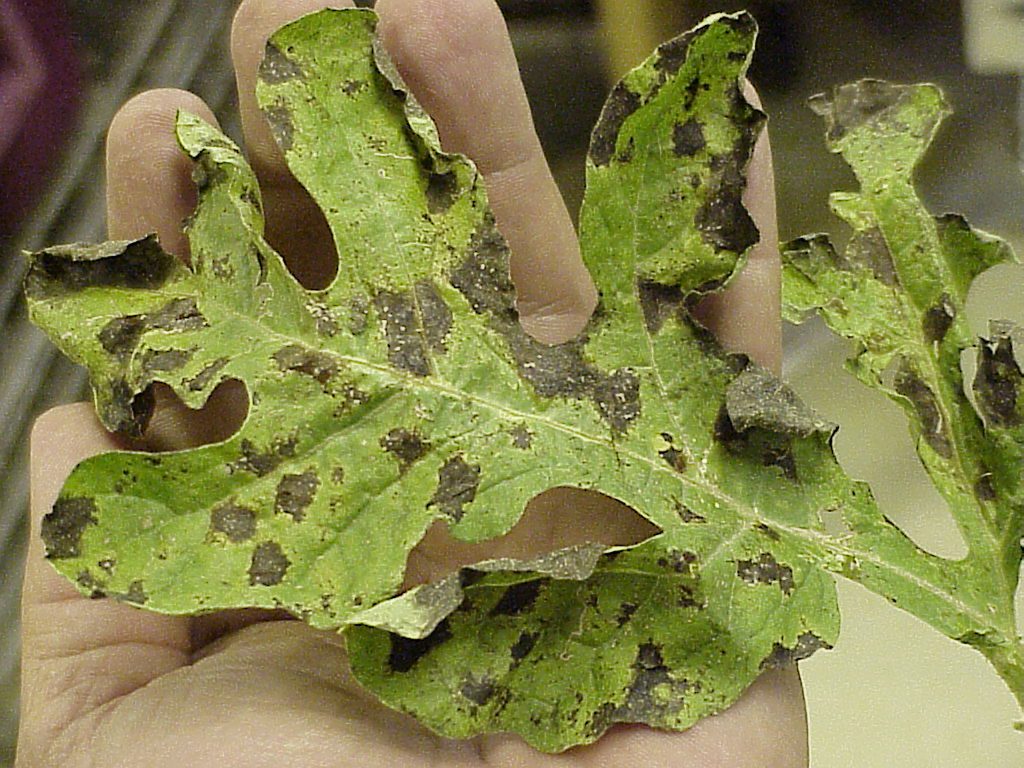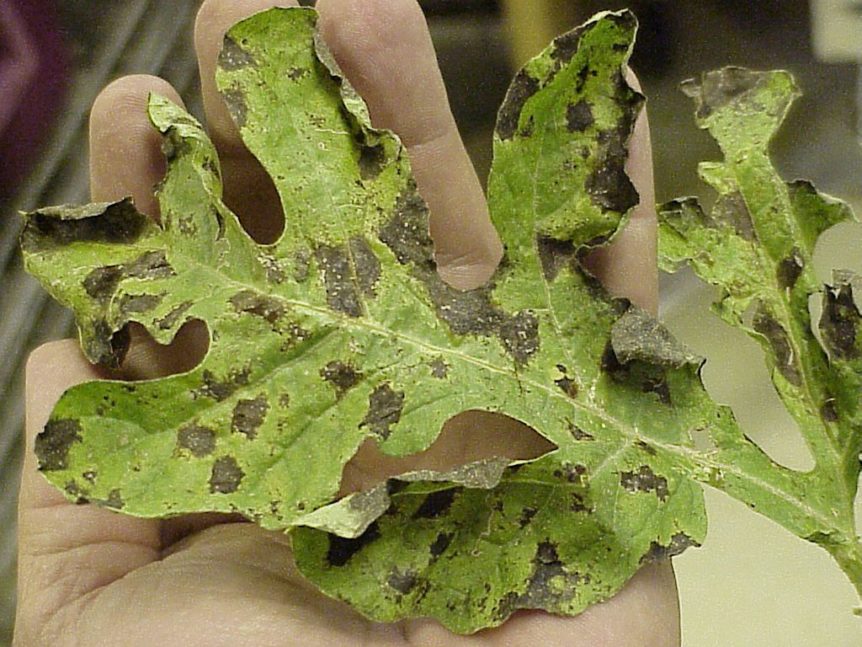
By Clint Thompson
Georgia cucurbit producers should be aware that downy mildew disease has been detected in a cucumber field in Echols County.
Bhabesh Dutta, University of Georgia (UGA) Extension vegetable plant pathologist, noted the observation in the UGA Vegetable Blog. Weather conditions have been conducive for downy mildew development, and Dutta believes it is only a matter of time before the disease is reported in other southern counties.

“It’s not unsurprising, plus this is the time of year when we get downy, so I was expecting it,” Dutta said. “It was a week earlier than last year.
“It’s going to move northward now. It may start popping up in northern counties, north of Echols.”
Cucurbit crops are susceptible to downy mildew disease, though cucumbers and squash are at a much higher risk than watermelons right now. Downy mildew in watermelon will appear later in the production season. The disease can destroy plant foliage and cause the leaves to curl and die. The pathogen thrives in wet, humid conditions and requires moisture on the plant surface for spore germination and future infection.
“If it’s dry, sunny weather, open sky, we’ll have less of an issue,” Dutta said.
Dutta advises cucurbit farmers to scout for symptoms in their fields and apply a protective fungicide spray. For cucurbits, such as cucumber, squash and cantaloupe, growers should apply Oronids opti; Elumin+Bravo; Ranman+Bravo; Previcur flex+Bravo. Producers should avoid using Orondis premixes as a foliar if they were used as a soil application.
Producers should contact their local county Extension agent for additional information.










